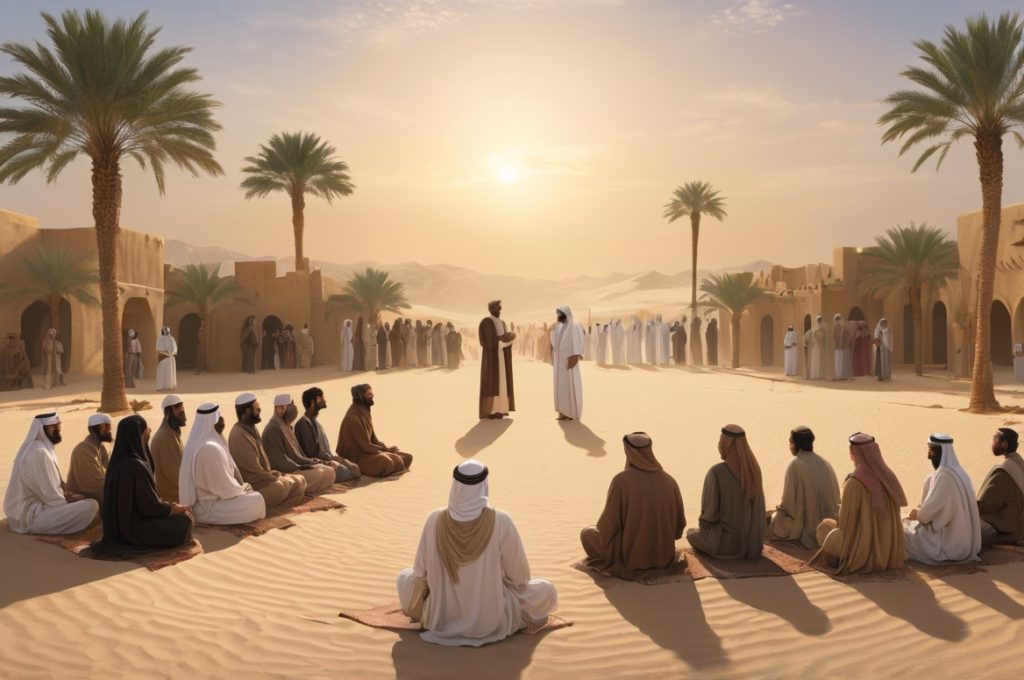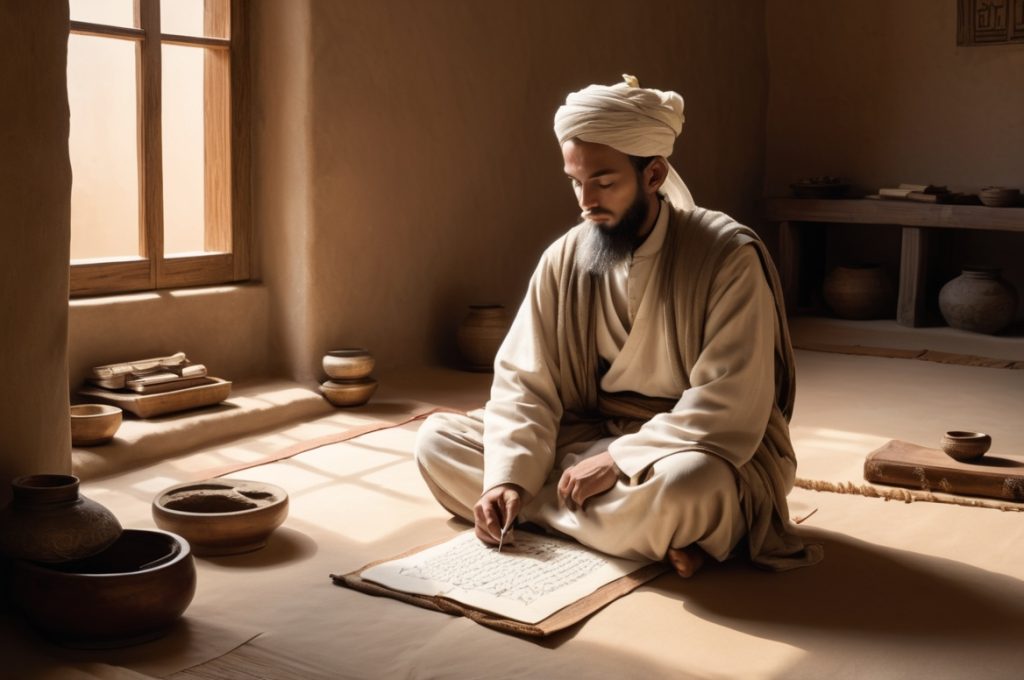Belief in the Prophets in Islam (Iman bil-Rusul)

One of the fundamental principles of Islamic faith is the belief in the prophets, known in Arabic as Iman bil-Rusul. This belief is deeply rooted in the Islamic worldview and forms one of the six articles of faith that every Muslim must accept. Understanding this concept is essential for anyone seeking insight into the Islamic perspective on divine guidance, human purpose, and moral responsibility.
In this article, we explore the meaning of belief in the prophets in Islam, the mission of these messengers of God, a list of major prophets recognized in Islamic teachings, the significance of Prophet Muhammad (peace be upon him), and how this belief shapes the lives of Muslims.
The Meaning of Iman bil-Rusul

Iman bil-Rusul refers to the belief in all the prophets and messengers whom Allah sent to guide humanity. In Islamic theology, a rasul (messenger) is someone who receives divine revelation through a holy scripture, while a nabi (prophet) may not necessarily receive a new scripture but still carries out God’s command to guide people.
Belief in the prophets in Islam means affirming that these individuals were chosen by God to deliver His messages and to exemplify righteous behavior. Muslims believe that these prophets were not divine, but rather humans who were free from major sin and chosen for their piety, sincerity, and trustworthiness.
The Mission of the Prophets

The primary role of the prophets was to call people to the worship of one God (Tawheed) and to lead righteous lives. They served as moral exemplars and spiritual leaders, guiding their communities with wisdom, patience, and compassion.
The Quran emphasizes that every nation received a messenger. As stated in Surah An-Nahl (16:36):
“And We certainly sent into every nation a messenger, [saying], ‘Worship Allah and avoid Taghut (false gods).’”
This universal mission reflects the inclusivity of Islamic teachings and the consistency of the divine message throughout human history. The prophets were also tasked with warning people against idolatry, injustice, and moral corruption, while encouraging faith, charity, and ethical living.
Major Prophets in Islam

Muslims believe in all the prophets mentioned in the Quran and respect those mentioned in earlier scriptures. The Quran explicitly names 25 prophets, including:
- Adam (AS) – The first human and prophet.
- Nuh (Noah, AS) – Warned his people of the great flood.
- Ibrahim (Abraham, AS) – Known for his unwavering monotheism.
- Musa (Moses, AS) – Led the Israelites and received the Torah.
- Isa (Jesus, AS) – Born miraculously and preached the Gospel.
- Muhammad (PBUH) – The final prophet and messenger of God.
These prophets came with consistent teachings but were sent to different peoples at different times. Islam teaches that all prophets conveyed the same core message: belief in the One God, righteous conduct, and preparation for the hereafter.
The Five Greatest Prophets in Islam (Ulul Azmi)

Among all the messengers, Islam gives special recognition to five prophets known as Ulul Azmi — those endowed with strong determination, patience, and perseverance in the face of extreme adversity. These prophets are praised for their steadfastness and are considered role models of endurance and faith:
- Nuh (Noah, AS) – Preached monotheism for centuries despite continuous rejection and built the ark by God’s command.
- Ibrahim (Abraham, AS) – Rejected idolatry, faced fire for his faith, and was willing to sacrifice his son out of obedience to God.
- Musa (Moses, AS) – Confronted Pharaoh and led the Children of Israel out of slavery, receiving the Torah.
- Isa (Jesus, AS) – Born miraculously and upheld God’s message with wisdom, facing denial and attempted crucifixion.
- Muhammad (PBUH) – The Seal of the Prophets, faced intense opposition but successfully delivered the final divine message to all of humanity.
These five prophets exemplify resilience, leadership, and absolute trust in Allah, and their stories are frequently cited in the Qur’an for reflection and moral guidance.
List of 25 Prophets Mentioned in the Qur’an

The Qur’an explicitly mentions the names of 25 prophets. Muslims are required to believe in all of them, and also in other prophets who were not named, as God sent messengers to every nation:
- Adam (AS)
- Idris (Enoch, AS)
- Nuh (Noah, AS)
- Hud (AS)
- Salih (AS)
- Ibrahim (Abraham, AS)
- Lut (Lot, AS)
- Ismail (Ishmael, AS)
- Ishaq (Isaac, AS)
- Yaqub (Jacob, AS)
- Yusuf (Joseph, AS)
- Shu’ayb (Jethro, AS)
- Ayyub (Job, AS)
- Dhul-Kifl (Ezekiel, AS)
- Musa (Moses, AS)
- Harun (Aaron, AS)
- Dawud (David, AS)
- Sulaiman (Solomon, AS)
- Ilyas (Elijah, AS)
- Al-Yasa (Elisha, AS)
- Yunus (Jonah, AS)
- Zakariya (Zachariah, AS)
- Yahya (John the Baptist, AS)
- Isa (Jesus, AS)
- Muhammad (Peace Be Upon Him)
Each prophet conveyed the message of Tawheed (monotheism) and served as a moral and spiritual guide to their communities. Their lives offer timeless lessons in faith, humility, patience, and courage.
The Finality of Prophet Muhammad (PBUH)

Central to the belief in the prophets in Islam is the conviction that Prophet Muhammad (peace be upon him) is the final messenger. He is known as Khatam an-Nabiyyin (Seal of the Prophets), as affirmed in the Quran:
“Muhammad is not the father of [any] one of your men, but [he is] the Messenger of Allah and the seal of the prophets.” (Surah Al-Ahzab 33:40)
Muslims believe that Prophet Muhammad (PBUH) was sent as a mercy to all creation (Rahmatan lil-‘Alamin), and his message is universal and eternal. The Quran, revealed to him over 23 years, is considered the final and complete scripture for all of humanity.
His life serves as the ultimate model for Muslims. His character, honesty, justice, and compassion are often cited as examples of ideal behavior. The Sunnah (traditions of the Prophet) complements the Quran and provides practical guidance for daily life.
Importance of Belief in the Prophets in Daily Life

Belief in the prophets in Islam is not just a theological concept but a foundation for moral and spiritual life. It fosters a deep connection to God’s guidance and strengthens faith in divine justice and mercy.
Here are some ways this belief impacts daily life:
- Moral Inspiration: The stories of the prophets are a source of inspiration, courage, and patience in times of trial.
- Unity of Faith: It reinforces the idea that Islam is a continuation of the same divine message brought by earlier prophets.
- Respect for Other Religions: Muslims honor prophets from Judaism and Christianity, promoting mutual respect among Abrahamic faiths.
- Accountability: Believing in the prophets reminds Muslims that God has communicated His will and that they are accountable for following it.
- Following the Sunnah: Imitating the actions and ethics of Prophet Muhammad (PBUH) is a daily practice for devout Muslims.
Conclusion
Belief in the prophets in Islam, or Iman bil-Rusul, is a vital pillar of Islamic faith. It encapsulates the trust that Muslims place in God’s wisdom in sending righteous individuals to guide humanity. From Adam to Muhammad (peace be upon them all), each prophet played a crucial role in conveying divine guidance, warning against evil, and showing the path to salvation.
Understanding this belief enriches our knowledge of Islamic teachings and helps bridge gaps between faith communities. For Muslims, honoring the prophets means not only acknowledging their messages but also striving to live by the values they taught—truthfulness, justice, compassion, and unwavering devotion to God.
As we reflect on their legacy, we are reminded that the message of the prophets is timeless and continues to illuminate the hearts of believers across the world.




